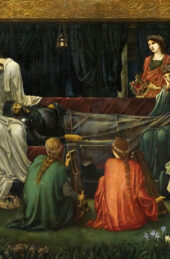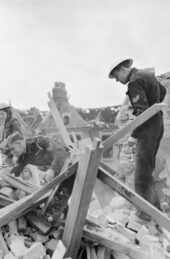When The Cold War Became “Hot”
Several years ago, I underwent physiotherapy treatment for shoulder pain. During one session, the physiotherapist noted I was a veteran, and wishing to pass the time, she asked me when and where I served. I replied I served in the US Army during the end of the Vietnam war and during the Cold War. She continued to administer treatment and then abruptly stopped.
‘The Cold War?’ she said with a puzzled look on her face. ‘Which one was that?’
That was the moment that I decided to write about the Cold War. I hoped my historical spy novels might inspire readers to want to learn more about, arguably, the most significant historical event of the second half of the 20th century.
When you mention the term Cold War to people who lived through it, the first image that usually pops to is a mushroom cloud. They would probably describe the Cold War as the standoff between West and East, principally between the two superpowers, the United States of America and Soviet Union. Nuclear arsenals on both sides stood ready to be launched, unleashing destruction on a scale few could imagine, and no one wanted to experience. Those of us who are of a certain age will remember performing ‘duck and cover’ drills in school, diving under our desks, or sheltering on the floor in a coat closet with our hands covering our heads until our teachers gave us the ‘all clear’ and said we could return to our desks and resume our regularly scheduled lessons.
Fortunately, the world never experienced nuclear Armageddon, but there were several close calls. The Cuban Missile Crisis in 1962 was arguably the closest the world came to nuclear war. And in 1983, the NATO military exercise Able Archer, which simulated nuclear escalation procedures, was so realistic that some Soviet leaders believed it was a cover for an actual first strike. It was not until after the exercise concluded, when MI6 asset Oleg Gordievsky revealed the Kremlin’s hypersensitivity to British and U.S. leaders, that the USA and NATO became aware the Soviets had initially interpreted the exercise as a ruse for a real attack.
The USA and USSR never came to blows directly, but they did engage in proxy wars around the world. During the earliest days of the Cold War, the intelligence services MI6 and the CIA launched several covert military operations. These operations ran from the late 1940s until the mid-fifties.
A joint MI6-CIA operation in Albania, codenamed Operation Valuable by the British and Operation Fiend by the Americans, attempted to overthrow the communist regime of Albanian ruler Enver Hoxha.
Operation Jungle was a covert action carried out by MI6, with backing from the CIA. Its aim was to replace Soviet-backed communist governments in the Baltic states and in Poland by infiltrating agents and fighters. This operation provides the historical canvas upon which my novel, Operation Nightfall: The Web of Spies is painted. Using refurbished fast boats with German crews, agents trained at a MI6 facility in Chelsea, London, were dropped off on remote beaches. They would contact insurgent groups and enter the fight, with the ultimate goal of rolling back communism to the borders of the USSR, all of which is depicted in my novel.
Why set the novel in Poland? I can say with high confidence that most Americans have little or no knowledge of the Polish anti-communist insurgency. Most people do not realize that when the war in Europe ended in May 1945, fighting in Poland continued for another eight years. Fewer have knowledge of these early covert paramilitary actions, which established operational methods that would be repeated in other proxy conflicts later during the Cold War.
I also wanted readers to understand the cost involved. Operations Valuable/Fiend and Jungle were all failures. In all, more than 550 agents were lost, killed, or turned because Cambridge spy Kim Philby compromised the operations. And, in Poland, a nation which suffered greatly during World War II, thousands were arrested, imprisoned, and tortured. Many Poles disappeared into the Soviet Gulag system. They were sent ‘into the fog,’ as I describe in Operation Nightfall.
In the end, Operation Nightfall is just a spy story. But it is a story I hope will pique readers’ interest to learn more. The novel sheds a light on a lesser-known story of the Cold War, while at the same time immersing readers into the shadowy and morally ambiguous world of spy-versus-spy operations.

Karl Wegener is the author of Operation Nightfall: The Web of Spies.






